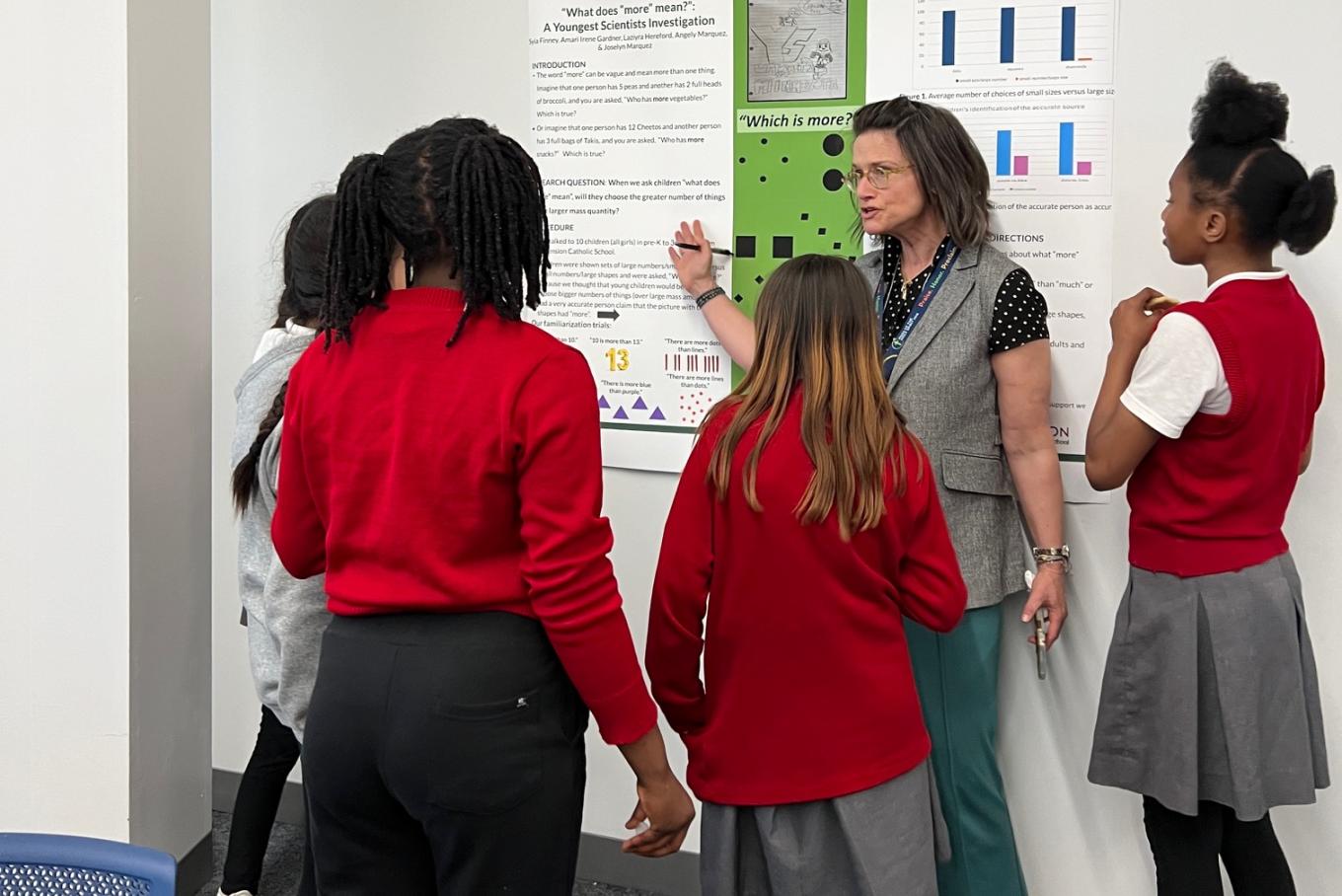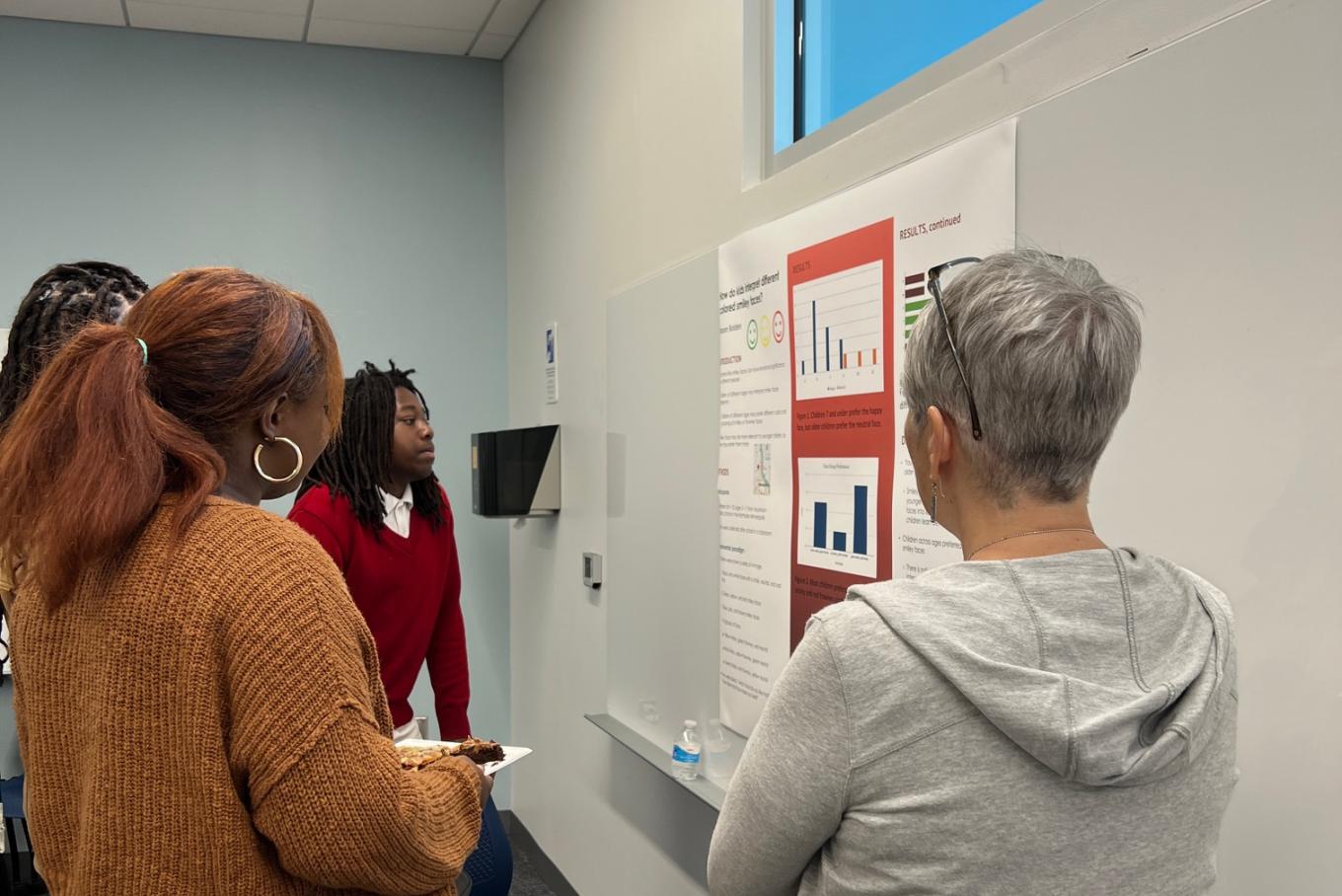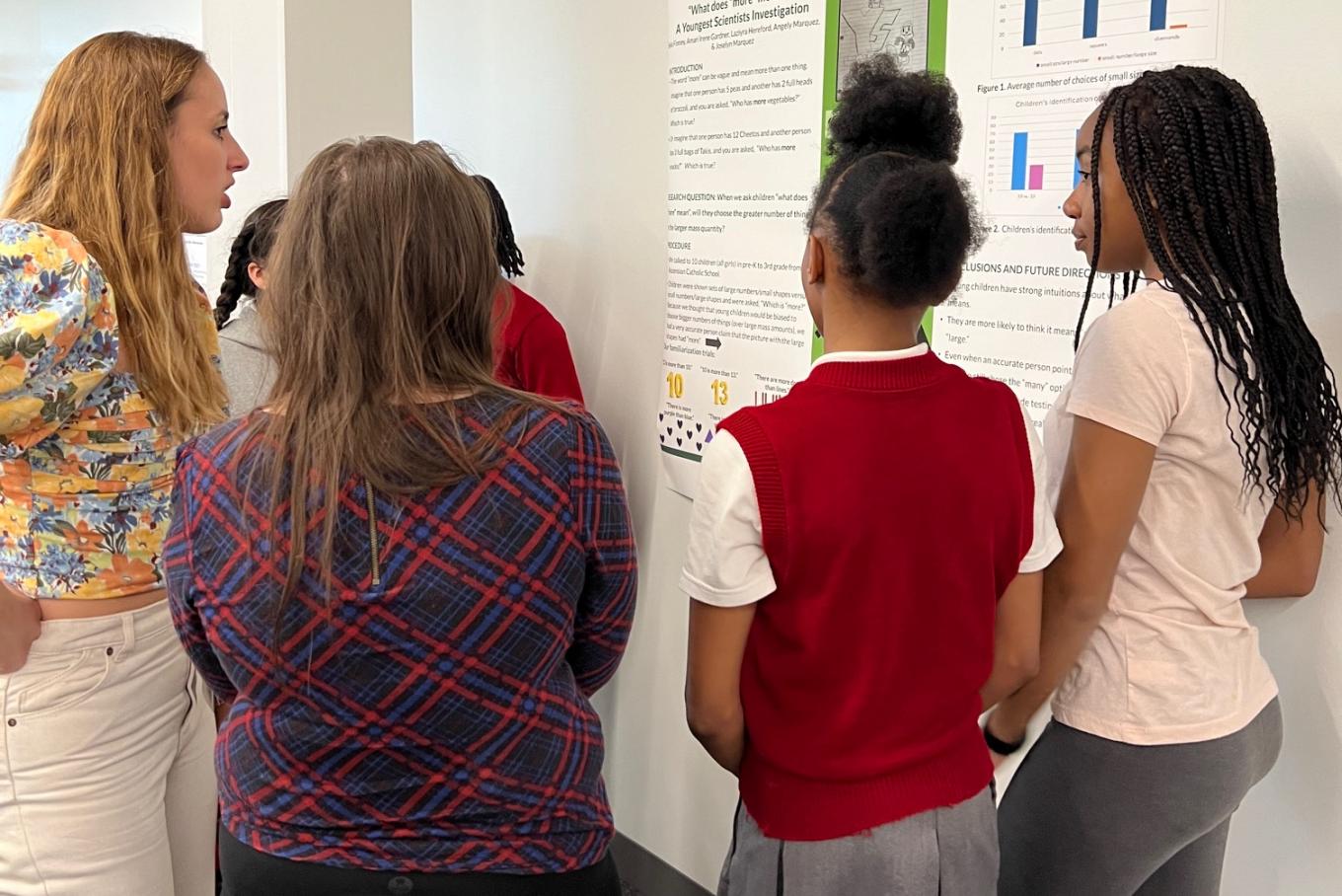News
Young Scientists outreach program celebrates 5 years
By Sarah Gillespie, ICD doctoral candidate and Young Scientists volunteer
Since 2019, the Young Scientists Program has brought together faculty and students from the Institute of Child Development and middle school students from Ascension Academy in Minneapolis to explore developmental psychology research questions. The program was born out of Dr. Melissa Koenig’s longstanding volunteer relationship with Ascension, whose leaders asked her to start an after school program for their scholars. The students attend field trips to learn more about research done at the University of Minnesota and present their findings at an end-of-year symposium.
Each year from November to May, Ascension scholars meet with mentors every Friday to generate their own research ideas, sometimes inspired by classic studies in developmental psychology and other times by curiosity about how their younger siblings or peers see the world. Each team of scholars is supported by an undergraduate or graduate research mentor as they generate testable hypotheses, collect data from other students at Ascension, and interpret their results. Students at Ascension have often heard of the scientific method in their classes, but being able to apply it to their own questions through Young Scientists has proven to be empowering and exciting.
At this year’s Young Scientist Symposium on May 17th, seven different groups of scholars shared research posters with topics ranging from social-emotional development (“Why Do Bullies Bully?” and “How Do Older and Younger Kids Decide Who To Talk To?”), to perception (“How Do Kids Interpret Different Colored Smiley Faces”), and stereotypes (“What Do ‘Mommies’ and ‘Daddies’ Look Like.”) This was a record number of posters for Young Scientists, reflecting students’ wide range of interests and the growing confidence of returning scholars to pursue independent questions. At this year’s Symposium, there were smiles all around as scholars shared their posters with peers, parents, and teachers from Ascension. While the research posters are the most tangible outcome of a year of work, the core mission of Young Scientists is to build strong relationships between researchers and young scholars. Reflecting the success of that mission, many scholars return to the program year after year, developing into confident, creative scientists along the way.


